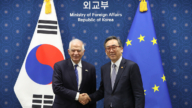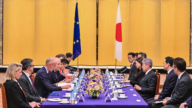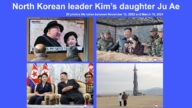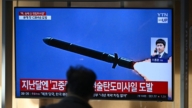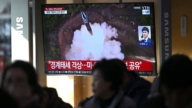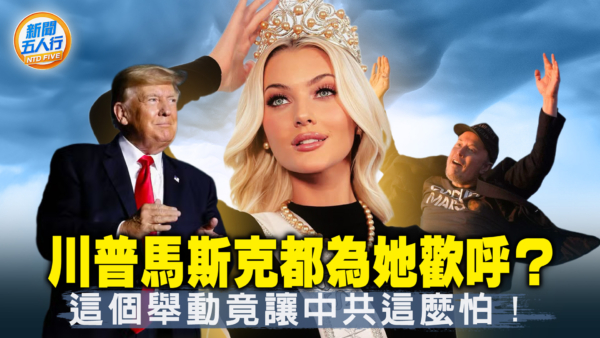【新唐人2014年07月01日訊】中共領導人習近平將於7月3號和4號出訪韓國,成為上任後第一位還沒訪問朝鮮,就先訪問韓國的中共領導人。分析人士指出,習近平此舉凸顯了對朝鮮領導人金正恩的不滿,也希望藉此拉近與韓國的關係,削弱美國在亞太地區的影響力。
6月27號,中共外交部在例行記者會上宣佈,習近平將於7月3號至4號對韓國進行國事訪問。近20年來,中共領導人一向先訪問朝鮮,再訪問韓國,這一次,以國家主席身份訪問韓國的習近平,將打破這一慣例。
韓國青瓦臺27號也發佈聲明說,習近平和韓國總統樸槿惠(Park Geun-hye)將就包括朝鮮核問題在內的朝鮮半島問題,商討合作的方式。
中國是朝鮮主要的援助國、及外資來源和貿易夥伴。美國《華爾街日報》引述分析人士的話指出,北京不滿朝鮮領導人金正恩沒有對北京展現「應有的尊重」。而習近平此行,讓金正恩知道,誰才是中、朝關係的主導者。
旅美政論家伍凡:「金正恩上臺3年了,中國的領導人沒有訪問平壤,現在習近平正式要訪問韓國,這就是說明,中國和朝鮮的關係非常壞、非常殭。金正恩不願意跟中國友好,他一而再、再而三在中國門口要搞核試驗,中國勸他,他不聽,並且叫囂要打美國、打日本、打韓國,總的來講,他是戰爭的一個禍源。這一次習近平先去訪問韓國,就是給小金胖子一個顏色看。」
6月29號凌晨,朝鮮在江原道元山一帶,向朝鮮半島東部海域發射了兩枚短程導彈,射程500公里,疑為飛毛腿系列。
韓國軍方認為,朝鮮在習近平訪韓前夕發射導彈,可能是一種「武力示威」,朝鮮也試圖以此吸引有關各方的關注。
北京時政觀察人士華頗:「朝鮮這次發射導彈,表面層次就是告訴中國,我並不聽你的,我會按照我的利益行事,也對中國一直也沒允許金正恩訪問北京的一種憤怒的宣洩。深層次的來說,朝鮮發射導彈,其實是向美、日,尤其是美國喊話,要知道朝鮮的經濟已經到了崩潰的邊緣,他需要大量的外援,所以他就想和美、日搞好關係,尤其是和美國搞好關係。」
最近,日本首相安倍晉三向供奉了二次大戰甲級戰犯的「靖國神社」獻上祭品,而他對慰安婦的態度同樣惹怒了韓國。北京時政觀察人士華頗指出,北京急於利用韓國和日本的緊張關係,來削弱美國在亞太地區的影響力。
華頗:「美國重返亞太,他要加強美、日、韓、澳大利亞,還有東盟的戰略同盟關係,但是中國看到了,韓國和日本存在著歷史和領土爭端,所以中國從韓國尋找突破口,拉近和韓國的距離,讓韓國不要加入美國在亞太地區的防導網(防禦導彈網)。」
報導說,自從朝鮮上次進行核試驗以來,中國學者和官方媒體開始更為公開的批評朝鮮。但是,外交人士和相關專家向《華爾街日報》指出,中共對朝鮮的政策並沒有根本性變化,中共軍方仍視朝鮮為對抗駐亞洲美軍的重要戰略緩衝帶。
另一方面,報導說,韓國總統樸槿惠曾在去年6月訪問北京,她將改善與中共的關係,作為韓國的外交工作重點。不過,韓國官員在渴望與北京加強聯繫的同時,也擔心中共在亞洲的行事會更加強硬。去年11月,中共設立防空識別區,但這一防空識別區與韓國此前設立的防空識別區有重疊。而且近年來,韓國與中國的漁業糾紛不斷。據《韓聯社》報導,截至5月12號,今年因非法捕撈而被扣留的中國漁船共有80艘,罰款總額達12億韓元。
韓國峨山政策研究學會(Asan Institute for Policy Studies)會長咸在鳳(Hahm Chaibong),他向《華爾街日報》表示,韓國仍在探索與中共的關係。
採訪/朱智善 編輯/陳潔 後製/陳建銘
Xi Visits South Korea to Show Beijing’s Discontent for North
The Chinese leader Xi Jinping will visit South Korea on July 3
and 4.
Xi is the first CCP leader to visit South Korea
before going to North Korea.
Commentators say his decision shows Beijing’s displeasure
with North Korean leader Kim Jong-un and Beijing’s decision
to build closer relations with South Korea in order to weaken
U.S. influence in the Asia-Pacific region.
On June 27, the CCP Foreign Ministry announced in a
press conference that president Xi Jinping will conduct
a state visit to South Korea on July 3 and 4.
For the past 20 years, the CCP leaders have always visited
North Korea before South Korea.
Xi Jinping is breaking this convention.
The South Korean Blue House, the presidential office,
said in a statement Friday that Mr. Xi and Ms. Park will
“exchange opinions on cooperative ways
to deal with situations on the Korean peninsula
including the North Korean nuclear issue."
China is North Korea’s main ally,
aid provider, investor and trade partner.
Wall Street Journal quoted analysts saying, “Beijing’s frustration
at North Korean leader Kim Jong Un’s perceived unwillingness
to show due deference to China,” and “Beijing feels that it needs
to teach him a lesson and show who is the alpha male
in the relationship”.
Political commentator Wu Fan: “Kim Jong Un has taken office
for three years, but the CCP leader has not visited Pyongyang.
This visit to South Korea first shows that relations
between China and North Korea are in the rough.
Kim Jong-un is reluctant to be friendly with China,
and has even conducted nuclear tests near the Chinese border.
Rather than taking advice, Kim has threatened to fight
the US, Japan, the South Korea.
I think he is a curse of war.
Xi Jinping’s visit to South Korea first is a slap in Kim’s face."
On the morning of June 29, North Korea fired two short-range
ballistic missiles into seas east off its coast on Sunday.
The missiles, which flew about 500 km (310 miles),
appeared to be Scud class.
South Korean military officials say that North Korea launch
of the missiles prior to Xi Jinping’s visit to South Korea is
provocative and attention grabbing.
Hua Po, Beijing politics watcher: “Superficially, North Korea’s
missile tests tells Beijing that North Korea will not be submit
to China, and will act based on its own interests, and it shows
North Korea’s anger at the delay of a state visit
of North Korea to China.
At the deeper level, the test tells the U.S. and Japan its intention
to keep a good relation with them.
North Korea is at the brink of economic collapse,
and is in need of a lot of foreign aid."
Wall Street Journal reports that visits by Japan’s president
to shrines for war criminals, and his statements on Korean
“comfort women” have angered South Korea.
These “comfort women” were “forced to work in brothels
during Japan’s occupation of the Korean peninsula and its
expansion into China before and during World War II.”
Hua Po says Beijing is anxious to down play U.S. influence
in the Asia-Pacific region by exploiting tensions
between South Korea and Japan.
Hua Po: “The United States will return to Asia
by strengthening a strategic alliance with Japan, Korea,
Australia and ASEAN.
Beijing wants to exploit the historical and territorial disputes
between Japan and Korea so as to get closer
to South Korea and prevent South Korea from joining
the U.S. defense network in the Asia Pacific region."
WSJ reported that “Chinese academics and state media
have become more openly critical of North Korea
since its last nuclear test.
“Diplomats and experts who track the issue closely said there
has been no fundamental change in China’s policy toward North
Korea, which the Chinese military still sees as an essential
strategic buffer against U.S. forces in Asia.”
South Korean President Park Geun-hye is making relations
with China a top priority and paid a visit to Beijing last June.
WSJ says “She also made bilateral free-trade negotiations with Beijing
a priority.
“While officials in Seoul stress strong ties with Beijing, they
are also wary of China’s more assertive behavior in the region.
“Seoul protested last year over Beijing’s establishment of an
air-defense zone that overlapped with South Korea’s
pre-existing zone.
“Friction has also been generated by deadly clashes
between Chinese fishermen and the Korean coast guard
in waters close to the Korean coast.”
Seoul-based Yonhap reports that as of May 12 this year,
80 Chinese fishing boats have been detained for illegal fishing
and fined a total of $1.2 million.
President Hahm Chaibong of the Seoul-based think tank
Asan Institute for Policy Studies told WSJ that South Korea
is “still figuring out the relationship with China."
Edit/Zhuzisan Interview/Chenjie Post-Production/Chenjianmin





